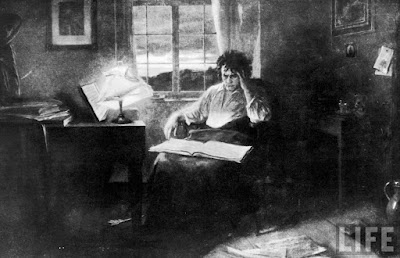This is something I decided to do. I woke up this morning realizing what I was spending most of my time on, was not what I loved to do. Sure, immediacy is often necessary. But not constantly because it needs to be taken in d o s e s. It becomes invasive if you let it. And believe me, you have no choice in doing otherwise once committed. I made a list of what I love. None of which was I able to enjoy (at all). Everything became shortened, brief.
What I love:
Family
Literature
A good sleep
Real genuine conversations with real genuine everyday people
Exercise and all around healthiness
How how I was affected:
F: I rarely see them. This saddened me. Family is the only thing close to permanent in life. And even they aren't permanent. As I'm witnessing presently. Time is more than precious.
L: There is no time to enjoy it. It is an activity that requires the presence of both leisure and pleasure.
A: I have nightmares. Each and every night. I wake up and it's the first thing on my mind. I dread it, it pushes back everything else I have to do.
R: I miss my friends. I desire trust and truth. Having conversations with them that aren't work related. Having conversations that aren't me panicking and them dealing with me. I miss being the teacher. Having the time and patience to assist others. Be true and genuine to myself and them.
E: I'm the type of girl who needs to play. I've always been active. On multiple sports teams. Or in yoga. I need to go to the gym and exercise at least three times a week or I am miserable and slow. I simply have no time. Because I have no time, I also eat garbage. Kielbasa is not for dinner, then lunch and dinner the next day.
Plato says that it is very important to sort your desires as I did. What truly makes you happy vs. what you think makes you happy. The desire for things that encourage the soul not harm.
It is hard to do so, but can you do the same?

















